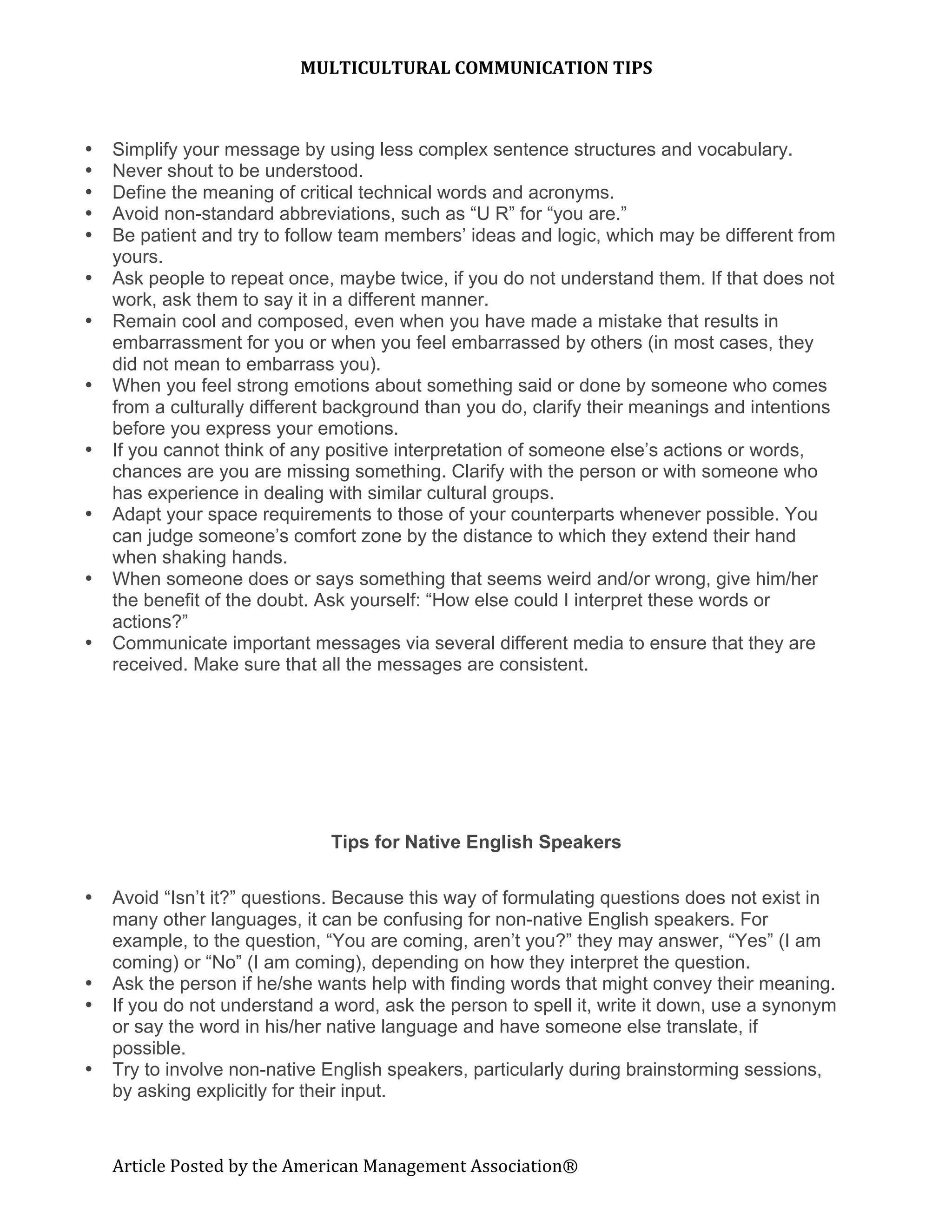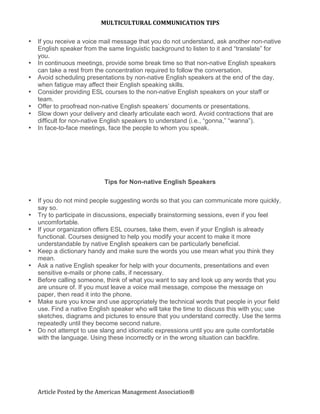The document provides tips for effective multicultural communication. It suggests simplifying language, defining technical terms, being patient, clarifying intentions before expressing emotions, and giving benefit of the doubt. Tips for native English speakers include avoiding confusing question forms and slowing speech. Tips for non-native speakers include participating, using dictionaries, getting help with documents, and practicing technical vocabulary. The overall message is that clear communication requires understanding different cultural perspectives and adapting to ensure understanding.

